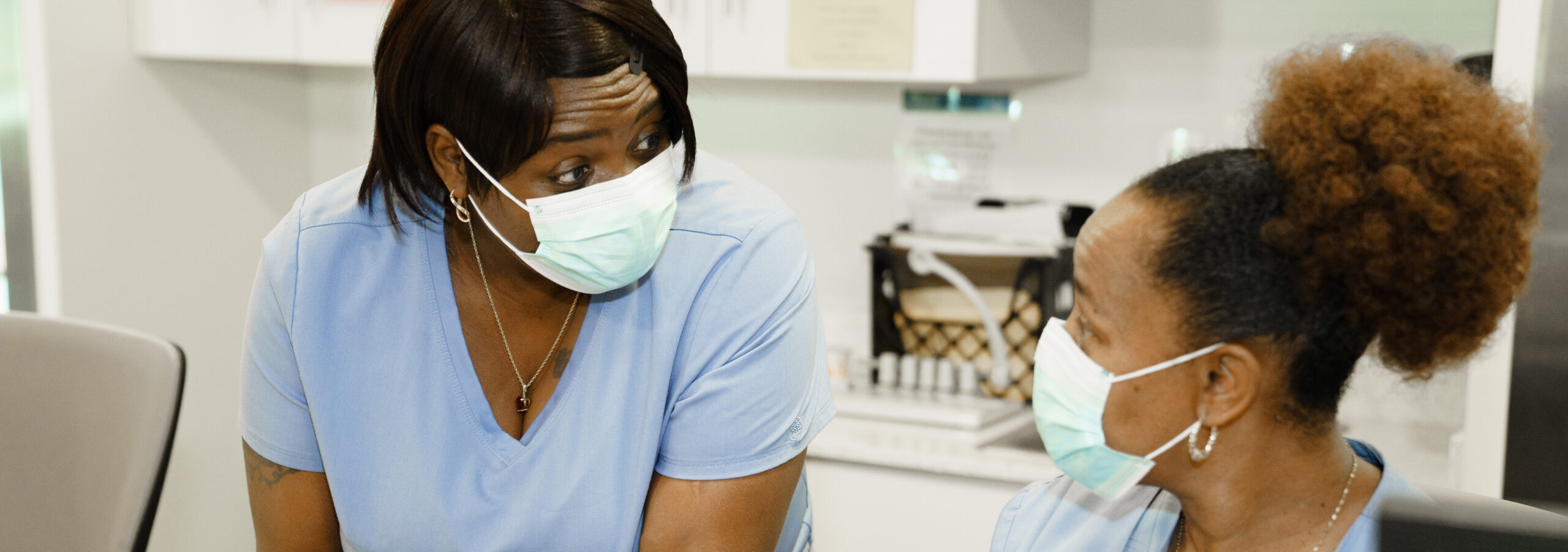Wounds develop when the skin is damaged or broken, which could be caused by mechanical, chemical, or thermal sources. While some wounds heal naturally on their own and within a short time, others may heal more slowly than expected or may be deeper, requiring medical attention to prevent serious complications. If left untreated, a wound can lead to infection, sepsis, or loss of function. That is why wound care is essential to prevent complications and preserve function.
What is wound care?
Wound care incorporates all the stages of wound management, from diagnosis to treatment. This involves considering factors that could affect healing, assessing the severity, and determining the best treatment options for each case.
The treatment team can also analyze your diet and recommend a specific meal plan rich in zinc, proteins, and vitamins A and E – which can all be essential to wound healing.
Finally, the specialists maintain cleanliness and monitor the healing process to observe and deal with an infection in case it occurs.
What are the wound types and stages?
Overall, there are two categories of wounds; closed wounds where the damage and bleeding occur under the skin, and open wounds where the skin is broken and internal tissues are exposed.
Types of open wounds include:
- Abrasion: occurs when the skin rubs against a rough surface; produces little blood, but it is still important to remove any debris and sanitize the area to prevent infection.
- Laceration: a deep cut or tearing in the skin, often from knives, machinery, or other sharp tools. It causes rapid and significant bleeding, especially if deep.
- Puncture wound: caused by long, sharp, and pointy objects puncturing the soft tissue to cause a hole; It commonly affects only the outer layers of skin, but can be deep enough to damage internal organs and cause significant bleeding.
- Pressure sore: also known as bed sores, these develop when blood supply to a certain area is cut off by pressure. This sometimes occurs when patients sit for too long in a wheelchair or spend a lot of time recovering in bed. Individuals with circulation problems, malnutrition, or diabetes are at higher risk for developing pressure sores.
- Vasculitic ulcer: Vasculitis describes a wide range of diseases caused by inflammation of blood vessels. Vasculitic ulcers are wounds that develop as a result of this inflammation or an abnormal immune response.
- Diabetic foot ulcer: develops at the bottom of the foot and affects approximately 15% of people with diabetes. It is essential to seek medical care to reduce the risks of infection, which can lead to amputation.
The four main stages of the wound healing process are:
- Hemostasis: the most immediate stage, which involves blood clotting to close the wound and minimize blood loss.
- Inflammation: results from a buildup of fluid in the area and begins the healing process.
- Proliferative stage: new tissue is created, the skin begins to heal, and wound size decreases.
- Maturation: the wound fully heals and normal functioning returns.
If a wound does not follow these stages and is stuck in the process, it is considered chronic, and the patient is advised to seek immediate medical attention for wound care.
What factors affect wound healing?
As discussed above, a wound can get stuck at any stage in the healing process, creating a need to seek advanced treatment. This is usually caused by underlying issues, which can include:
Health conditions
Health conditions, such as diabetes, cancer, heart problems, thyroid issues, and pulmonary diseases can affect the body’s ability to heal naturally. Patients should be open with their physician about any health conditions they have – even if it does not seem related to wound care.
Medications and treatments
Chemo and radiation are among the treatments that could affect or stop wound healing as they break down the body’s defense mechanisms. Additionally, taking medications, such as anti-inflammatory drugs and steroids, could also affect wound healing and treatment. Ensure you share such information with your specialist.
Lifestyle
Some lifestyle habits could affect the body’s healing ability or wound treatment. Specialists consider these factors when determining proper wound care management. They include poor diet, alcoholism, smoking, and drug use.
Treatment of wounds
Before each treatment, medical providers carefully examine your wound to ensure the treatment is tailored to your needs.
Wound-healing therapies
Advanced dressings: This therapy promotes healing by absorbing drainage, applying pressure when needed, and preventing infection.
Debridement: This helps by removing the damaged tissue from the wound in preparation for new, healthy tissue and skin growth.
Hyperbaric therapy: This process assists in getting more oxygen to tissues and organs – vital for fighting infections and healing.
Negative pressure wound therapy: Involves draining unhealthy fluids and bacteria from the wound with a portable device. This reduces swelling and promotes healing.
Offloading casting: This involves reducing the pressure of the foot with a flexible casting to improve healing.
Specialized wound care at Brooks Rehabilitation
At Brooks Rehabilitation, we understand the pain and stress associated with an open wound. Be sure to contact us immediately if you have an open wound that has not begun healing within two weeks or has not completely healed within four weeks.
Our comprehensive care plans include specialized treatment for wounds, including:
- Minor burns
- Pressure-related ulcers
- Surgery-related wounds, such as in C-sections and skin grafts
- Radiation tissue damage caused by cancer treatment
- Diabetic foot ulcers
- Venous ulcers
To schedule an appointment or to get more information about our wide range of treatment options, contact us or visit a location near you.
